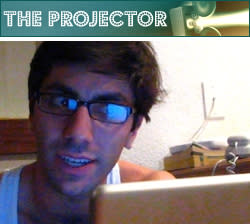Was the ‘Catfish’ Documentary a Hoax? We May Find Out in Court
%photo13% When "Catfish" premiered at Sundance, one of the biggest discussions revolving around the film wasn't about whether it was good but whether or not the movie was all an elaborate hoax. A documentary about Nev Schulman, a New York City photographer who fell in love with his dream woman online but began to wonder if she was really who she claimed to be, "Catfish" was directed by Schulman's friend and his brother, and the film's unbelievable, mystery-tale-worthy twists caused viewers to question just how nonfiction the whole thing really was. Well, a new lawsuit filed against the film may finally settle the matter for good.
Threshold Media is suing the filmmakers, producers, and distributors for money the company believes is due to musician Amy Kuney, whose song is used in the film. (In case you haven't seen the movie, we won't say exactly how the song factors in to what happens.) But the "Catfish" producers disagree, claiming they're protected by Fair Use, a legal provision that excuses folks like journalists and documentary filmmakers from having to shell out money for copyrighted material in their work.
But that's the problem: What if "Catfish" isn't an actual documentary? From the first Sundance screenings, directors Ariel Schulman and Henry Joost swore up and down that the whole thing was real, but nonetheless the whispers that the filmmakers at least partially rigged their amazing story have remained to this day. And if this lawsuit isn't settled beforehand, the "Catfish" team may have to testify under oath about the film's authenticity. If any of it was fiction, the creative team would have to either admit it or suffer the risk of being nailed with perjury charges if they continued to insist it was all real. (IFC's Alison Willmore brings up another interesting scenario: If only select scenes were manufactured, is "Catfish" still protected under Fair Use? Just how nonfiction does a nonfiction film need to be to meet the legal standard?)
No doubt there will be those who are hoping the "Catfish" collective are forced to testify so that their lies will be exposed. But even if it turns out that the filmmakers were lying, does that really change the impact of their movie? The people who disliked "Catfish" tended to be sure it was a hoax and openly detested the self-absorbed filmmakers (who both appear on screen) and their self-absorbed subject. These critics will get a small satisfaction for being proved right, but for those of us who were moved by the revelations of who Nev's dream girl was ... will we be offended if it was all a sham?
We don't think so.
Even if it's all fiction, "Catfish" still tells a wonderfully odd story about how three big-city, overgrown boys go out looking for a mystery and end up learning something about empathy along the way. We saw "Catfish" at Sundance and heard the filmmakers talk after the screening, and even though we really got swept up in the movie, we still weren't sure if they were trying to pull one over on us. As we walked back to our condo, we decided we didn't much care one way or the other. The movie may be a fake, but the emotions it conjured up were very, very real.
EXCLUSIVE: New Lawsuit Seeks to Expose Truth Behind 'Catfish' [The Hollywood Reporter]
The "Catfish" Lawsuit [IFC News]



